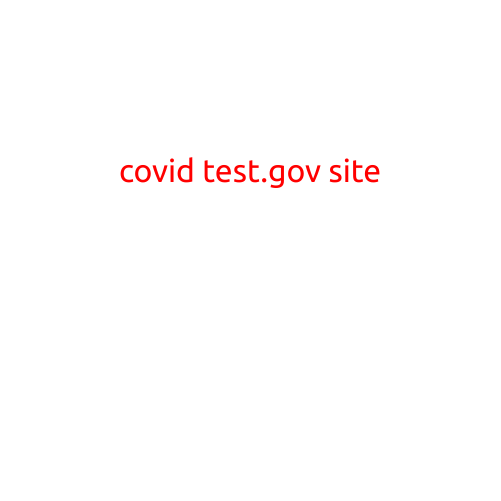
COVID Tests: The Government’s Test-Track-Treat Strategy
The COVID-19 pandemic has brought unprecedented global uncertainty, with millions of lives affected worldwide. As the virus continues to spread, governments and health authorities have been working tirelessly to develop and implement effective strategies to combat its spread. One crucial aspect of this effort is the widespread use of COVID-19 tests, which play a vital role in identifying infected individuals, tracking the spread of the virus, and informing public health policy.
What are COVID-19 Tests?
COVID-19 tests, also known as PCR (polymerase chain reaction) tests, are designed to detect the presence of the SARS-CoV-2 virus in a person’s body. There are several types of tests available, including:
- Nasal swab test: A cotton swab is inserted into the nostrils to collect a sample of cells and mucus, which is then sent to a laboratory for analysis.
- Throat swab test: A similar process to the nasal swab test, but the swab is inserted into the throat.
- Blood test: A blood sample is taken to measure the presence of antibodies, which are proteins produced by the immune system in response to an infection.
- Antigen test: A rapid test that detects the presence of viral antigens, which are proteins found on the surface of the virus.
How Do COVID-19 Tests Work?
The testing process typically involves the following steps:
- Sampling: A healthcare professional collects a sample from the individual, either through a nasal or throat swab or a blood draw.
- Transportation: The sample is transported to a laboratory for analysis.
- Analysis: The sample is analyzed using specialized equipment and techniques, such as PCR or antigen detection.
- Reporting: The test results are reported to the individual and their healthcare provider.
The Government’s Test-Track-Treat Strategy
The government’s test-track-treat strategy is a comprehensive approach to managing the COVID-19 pandemic. The strategy involves the following:
- Testing: Widespread testing to identify infected individuals and contain the spread of the virus.
- Tracking: Tracing and tracking the contacts of infected individuals to prevent further transmission.
- Treat: Providing effective treatment and care to those who are infected, including hospitalization and antiviral therapy.
Benefits of COVID-19 Testing
COVID-19 testing offers several benefits, including:
- Early detection: Testing allows for early detection of infected individuals, which enables prompt isolation and treatment.
- Prevention: Testing prevents the spread of the virus by identifying and isolating infected individuals before they can transmit the virus to others.
- Improved patient outcomes: Early detection and treatment of COVID-19 improve patient outcomes and reduce the likelihood of severe illness and death.
- Informed public health policy: Testing informs public health policy and helps governments make data-driven decisions about how to manage the pandemic.
Conclusion
COVID-19 tests are a crucial tool in the fight against the pandemic. By providing accurate and timely results, tests enable healthcare professionals to diagnose and treat infected individuals, track the spread of the virus, and inform public health policy. The government’s test-track-treat strategy has been instrumental in managing the pandemic, and its continued use will be essential in controlling the spread of COVID-19.





